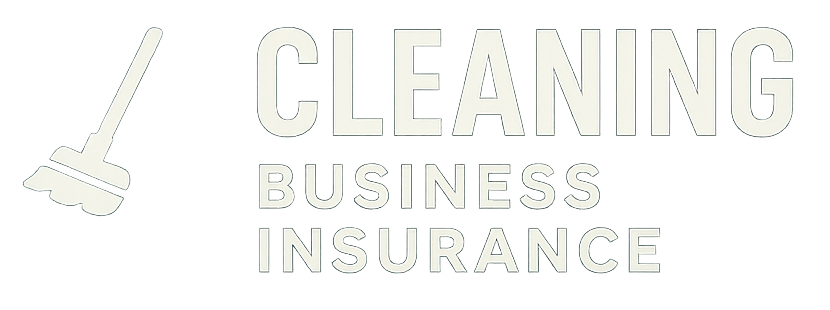Running a cleaning business in California comes with both opportunities and responsibilities. One of the most critical aspects of operating safely and professionally is ensuring that your contracts with clients include proper insurance requirements. Many property managers, commercial clients, and homeowners expect that a cleaning company is adequately insured before starting any work. Understanding what contracts should require—from coverage limits to bonds and insurance certificates—not only protects your business but also strengthens client trust and safeguards your financial future.
Understanding the Importance of Insurance in Cleaning Contracts
Cleaning contracts are not just agreements on scope and pricing; they are legal documents that outline the responsibilities of both parties. When entering into these agreements, insurance is a key component because it provides financial protection if something goes wrong. For example, a slip-and-fall accident, accidental damage to client property, or employee injury could result in claims that exceed your business’s assets if you are not properly insured.
Insurance requirements in contracts demonstrate professionalism. Clients feel confident hiring companies that carry appropriate coverage, knowing that any incidents will be managed responsibly. From a business perspective, having these requirements clearly outlined in contracts helps prevent disputes and ensures both parties understand the financial protections in place.
Types of Insurance Typically Required in Cleaning Contracts
There are several types of insurance that clients may require in cleaning contracts. Understanding these will help you negotiate terms and maintain compliance.
1. General Liability Insurance: This is the cornerstone of any cleaning business’s coverage. It protects against claims of third-party property damage, bodily injury, or negligence. Cleaning companies often work in environments filled with delicate furnishings, electronics, or expensive equipment. Accidental damage can happen, and general liability coverage ensures that repair costs, medical bills, and legal expenses are covered. Contracts should specify the minimum coverage limits to avoid situations where claims exceed your insurance protection.
2. Workers’ Compensation Insurance: If your cleaning business employs staff, workers’ compensation insurance is often legally required in California. This coverage provides benefits if an employee is injured or becomes ill while on the job. Cleaning tasks frequently involve lifting heavy objects, using chemicals, or working on slippery surfaces—all of which can result in workplace injuries. Including workers’ compensation requirements in contracts protects your clients from liability and ensures your employees are covered in case of accidents.
3. Business Owner’s Policy (BOP): Many contracts also ask for a Business Owner’s Policy, which combines general liability and property insurance into one comprehensive plan. This coverage can include tools and equipment, property damage, and business interruption protection. By listing BOP requirements in contracts, clients can be assured that your company has robust coverage for both liability and property losses.
4. Janitorial Bonds: Bonds act as a financial guarantee that the cleaning business will fulfill its contractual obligations. Some contracts, especially those with larger commercial properties, require janitorial bonds. These bonds provide reassurance that the business will perform services as agreed and can compensate the client if work is incomplete, negligent, or causes financial loss.
Coverage Limits: How Much Insurance Is Enough?
One of the most important aspects of insurance in cleaning contracts is specifying coverage limits. Coverage limits represent the maximum amount the insurance company will pay per incident or per policy period. Contracts should clearly state these limits to ensure both parties understand the extent of coverage.
For general liability, typical coverage limits range from $1 million to $2 million per occurrence, with higher limits recommended for commercial contracts. Workers’ compensation coverage is usually set by state law but can be increased for added protection. Equipment and property coverage within a BOP should reflect the total value of your business’s assets, including cleaning machines, vacuums, and supplies.
Specifying these limits in contracts prevents disputes and helps clients feel confident that your business can cover potential incidents. It also protects your business from being underinsured in high-risk situations.
Certificates of Insurance: Proof That You’re Protected
A certificate of insurance (COI) is a standard document that verifies your coverage, the policy limits, and the insurance provider. Many contracts require a COI before work can begin. It serves as proof to the client that your business carries the insurance you claim and meets the contractual obligations.
COIs should include details about general liability, workers’ compensation, BOP coverage, and any required bonds. Providing a COI demonstrates professionalism and transparency. It also simplifies the client’s due diligence process, allowing them to quickly verify coverage without delving into the full policy.
Additional Considerations for Cleaning Contracts
Beyond basic insurance requirements, some cleaning contracts include specific clauses regarding insurance endorsements. These may include naming the client as an additional insured, specifying that the insurance must cover subcontractors, or requiring prior notice if a policy is canceled. Including these details ensures comprehensive protection and reduces legal ambiguity.
Another important factor is risk assessment. Clients may request higher coverage limits or specific insurance types depending on the cleaning environment. For example, medical facilities, schools, and commercial offices often have stricter insurance requirements due to the sensitive nature of the premises and the potential for high liability claims.
Final Thoughts
For cleaning business owners in California, understanding what contracts should require from insurance is essential. Clearly defined insurance obligations—including coverage types, limits, bonds, and certificates—protect your business, reassure clients, and ensure compliance with legal and industry standards. By proactively addressing insurance requirements in every contract, you not only safeguard your operations but also strengthen your reputation as a professional and reliable cleaning service provider.
Investing time in understanding and documenting these requirements is a small step that can prevent costly disputes, support smooth operations, and help your cleaning business grow with confidence. Properly structured contracts and adequate insurance coverage are the foundation of a secure and successful cleaning business in California.
